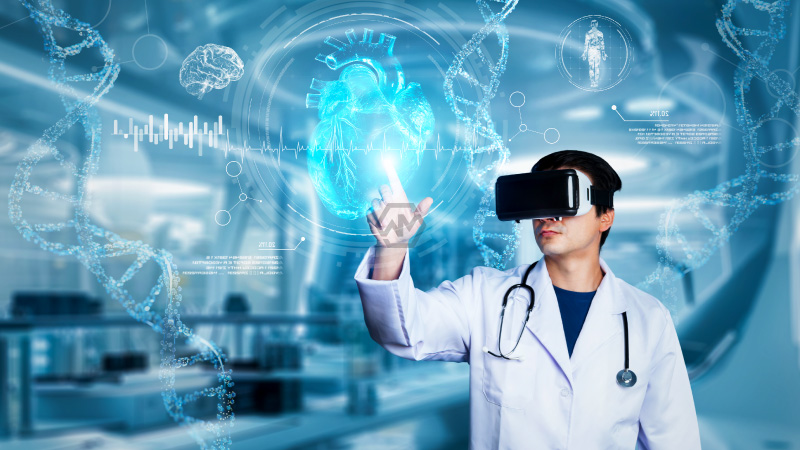- AI improves echocardiography, enabling faster and more precise cardiovascular diagnoses.
- AI-driven patient monitoring systems detect deterioration early, reducing mortality rates.
- AI enhances neurological disorder diagnostics, improving early detection and treatment.
Artificial intelligence is rapidly transforming medical diagnostics, addressing critical challenges in cardiology, patient monitoring, and neurology. AI-driven systems in echocardiography improve efficiency by automating image analysis, reducing reliance on scarce specialists, and increasing diagnostic accuracy.
Beyond cardiology, AI-powered patient monitoring tools like the CONCERN Early Warning System significantly enhance hospital care. By analyzing nursing documentation, AI detects patient deterioration up to two days earlier than traditional methods, reducing mortality and complications like sepsis.
AI-Powered Healthcare: A New Era in Disease Diagnosis and Monitoring
In hospitals, AI-based patient monitoring tools analyze real-time nursing data to predict and prevent deterioration. These systems reduce hospitalization time, lower sepsis risks, and increase ICU transfers when necessary, leading to improved patient survival rates.
AI is revolutionizing echocardiography by automating complex image analysis, making cardiovascular disease detection more accessible and precise. The integration of AI software with advanced ultrasound systems enhances diagnostic accuracy, reducing dependence on specialized sonographers and accelerating patient care.
For neurological disorders, AI assists in early and accurate detection by analyzing imaging and genetic data. This capability enables personalized treatment plans, potentially slowing disease progression and improving patients’ quality of life.
AI-driven diagnostics not only enhance clinical efficiency but also bridge gaps in healthcare accessibility. By automating routine tasks and providing rapid, data-driven insights, AI empowers medical professionals to deliver better patient care globally.
AI is reshaping the landscape of medical diagnostics, offering faster, more precise, and proactive solutions across multiple specialties. By integrating AI into healthcare, patient outcomes are improving, and the burden on medical professionals is easing, paving the way for more efficient and accessible medical care.
“The art of medicine consists of amusing the patient while nature cures the disease.” – Voltaire.



